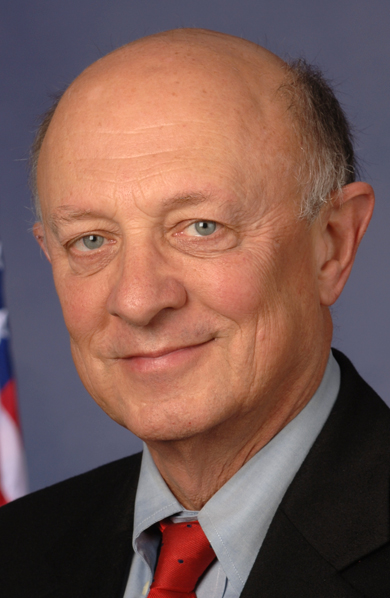
Former CIA director James Woolsey gave a presentation to the firm yesterday entitled, "Energy and the Future of the Middle East." Tellingly, he spoke about the the West's ideological enemies, how our oil dependence enables them, and what may be done to break this bleak triangle.
His description of the West's triangular relationship with oil and terrorism is based on our petroleum dependence (specifically in the transportation sector), the unhappy coincidence of oil's location in countries sans mature democratic institutions, and the necessity that these countries placate home grown dogmatists who seek the destruction of the Western world. This is nothing terribly new, but the interdependence was nicely described.
Where things get more interesting is where Woolsey started talking about how to "destroy the Middle Eastern oil monopoly." The economic label isn't quite accurate, but everyone gets the point. He referred by analogy to the commoditization of salt in the Nineteenth Century, following the widespread adoption of refrigeration technologies. Salt went from strategic asset to commodity when market demand abruptly shifted; it was technologically redundant as a major feature of food preservation. Hence we need to adopt transportation technology which is not substantially dependent on petroleum.
The way forward is provided by new solar cell technology, advances in battery technology, and bioengineering developments in fuel synthesis. With paper thin solar panels that run off of production lines at "one meter per minute," cheap night-time electricity, and abundant coal, we should be able to free ourselves of our dependence on petroleum, destroying OPEC, and defunding Middle Eastern ideologues. It's a pretty sweet combo-threat to become energy independent, but it sounds a bit too rosy.
- Coal is still a fossil fuel, ergo, continued massive carbon dioxide emissions
- Powering cars with "night time" electricity will become pricier as demand for total electricity and night time electricity grows, edging out the price difference in day time and night time electricity
- From what I understand, photovoltaic is still quite costly and inefficient
- The nation's electrical transmission infrastructure will need a huge upgrade to handle the increased demand and prevent massive service disruptions
- More likely than not, a reduction in Western or American demand for oil will result in lower prices and then increased oil consumption in the developing world; cheaper oil for China means more little change in global carbon dioxide emissions and more outsourcing of pollution as Chinese manufacturing becomes relatively cheaper
- Corn based ethanol as produced now is to energy security as Homeland Security is to, well, homeland security: an inefficient mess that creates more problems than it solves
- Advanced battery technology is a necessary but insufficient step; it does little to reduce demand (e.g. greater efficiency or plain lower consumption) nor does it do anything to improve supply
There's much promise in the ability to bioengineer microorganisms to create synthetic fuels from plant waste, but I gather that its a long way off from an industrially efficient option. The technological advances Woolsey advocates are certainly important ones to take, but they still only treat the symptoms and completely ignore the drivers of energy consumption. Maybe - just maybe - our demand for oil would be less if we didn't drive so far to and from work, which, maybe we wouldn't do if we didn't push out so far from cities because of constraining zoning regulations and federally subsidized mortgages.
Originally published 2008-03-13